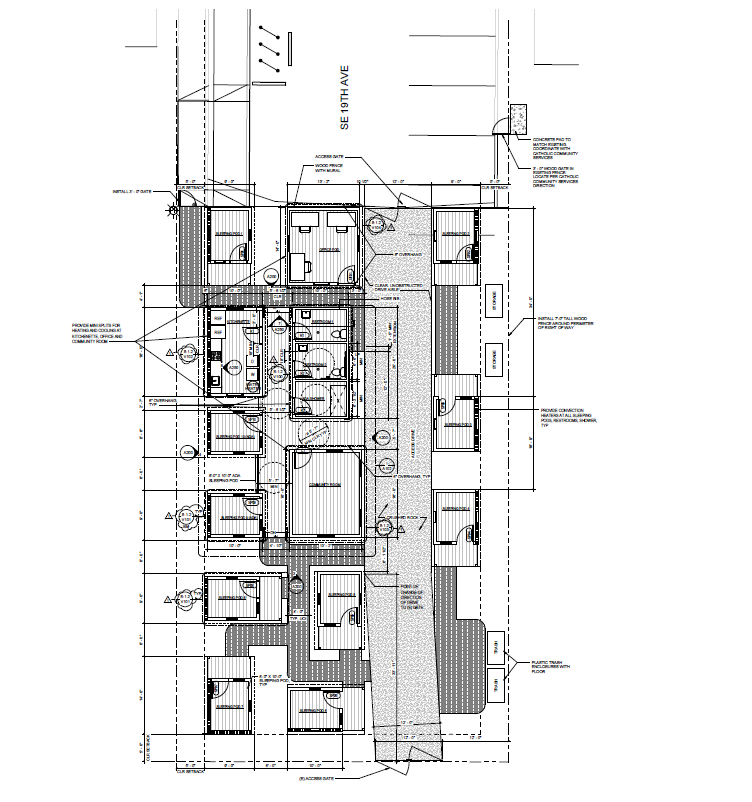Avalon Village
Avalon Village: A Transitional Micro-Village with Wraparound Services In the Hosford Abernathy Neighborhood: 2539 SE 19th Ave.
In early 2024, we will build the Avalon Village as our second site. The village will include 10 sleeping pods, an on-site office, a hygiene building with a shower and toilets, a kitchenette and laundry building and a third community building for meetings and group activities. Each sleeping pod will include a lockable front door, personal covered front porch, 2 windows, and interior heating, lighting, and outlets. Avalon will be fully fenced with security cameras at each gate.
Avalon Village will serve women and female-identified adults, prioritizing those who are Black, Indigenous, or People of Color as well as those who are older adults, have chronic health conditions or disabilities, or who have been camping in the near by area.
All of our village infrastructure is designed for easy dis-assembly and removal, as any of our leases or use agreements come to an end, all village structures will be quickly moved and reassembled at a new leased site. The site will be returned to the same condition as it was before our occupancy and use.
The site plan shown below was developed by Integrus Architecture. All permit approvals related to constructing this village have been received. The primary source of funding for this project is the Joint Office of Homeless Services. However, substantial support has also been received from Integrus Architecture (pro bono services), the Portland Bureau of Transportation (no lease cost), and the Providence Behavioral Health Better Outcomes from Bridges program (supplemental staff person).
ABOUT WESHINE
WeShine builds and operates small-scale villages with basic hygiene, sanitation, social service connections, and other support on donated or leased land to provide transitional shelter to adults while they await access to permanent affordable housing. Incorporated in May 2021, WeShine has accomplished much in its short history. Undergirded by a diverse and experienced Board and staff, we have developed a model of transitional shelter founded on national and statewide best practices in low-barrier shelter operations. WeShine prioritizes serving vulnerable underserved subsets of the unsheltered population such as racial, sexual, and gender minorities, persons fleeing interpersonal violence, and those with chronic health conditions or disabilities.
The primary funding source for WeShine’s micro villages is the Joint Office of Homeless Services, supplemented by grants and donations. The average total cost to build each WeShine 10-unit micro-village is 48,000 per unit. Annual operational costs for the 10-unit village average about $40,000 per bed per year. The Joint Office of Homeless Services (JOHS) has approved WeShine as an alternative shelter provider for the five-year May 2022 through June 2027 period.

